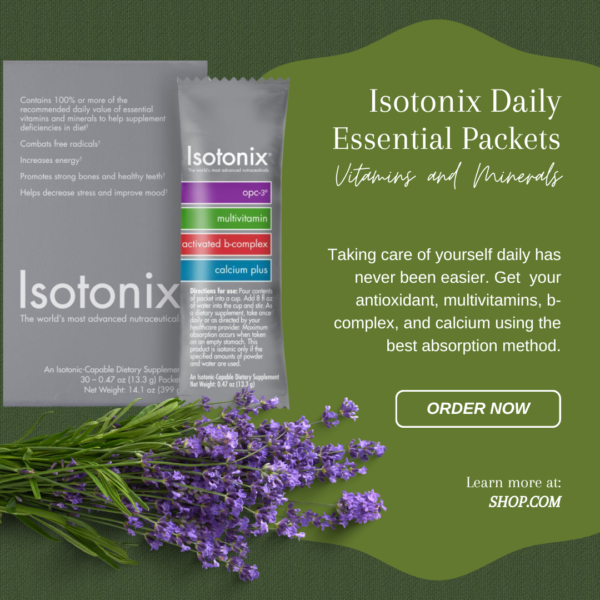Are you looking for a happier and more fulfilling life? The concept of happiness is complex, but it doesn’t have to be so difficult. In this article, we’ll explore what happiness is and provide 13 things that happy people do.
What Is Happiness?
Happiness is a subjective emotion that means different things to different people. For some, it may be the simple joys of life such as spending time with family and friends or enjoying a good meal. For others, it may be more complex achievements such as career or financial success. Happiness is an individual journey that each person must define for themselves.
People are often considered to be happy when they feel their life is on a positive course, and their life is seen as being one worth living. Positive emotions such as joy, contentment, satisfaction, hope, admiration, and pride are often associated with happiness.
Yet, happiness is subjective, and what makes one person happy may not work for another. Different factors such as culture, religion, personal views, and socioeconomic level influence happiness.
The Importance of Happiness
Happiness is an essential part of life. It is a state of being that allows us to live our lives with joy, contentment, and satisfaction. Happiness can be found in the smallest of moments and it has many benefits, such as improved physical and mental health, increased productivity, better relationships, and more. By pursuing happiness we can find meaning in our lives and become the best version of ourselves.
Yes, happiness is important because it contributes to our overall well-being and quality of life. When we are happy, we tend to experience positive emotions such as joy, contentment, and satisfaction. These emotions can profoundly impact our mental, emotional, and physical health, helping us feel more energized, motivated, and resilient. And studies suggest that happy people live longer.
Happiness Plays A Key Role in Relationships
Happiness plays a key role in our relationships with others, as it can help us to build stronger connections and form deeper bonds with those around us. A Harvard Study that spanned several years, found that our relationships and how happy we are in our relations have a powerful influence on health.
Robert Waldinger, a psychiatrist at Massachusetts General Hospital says, “Taking care of your body is important, but tending to your relationship is a form of self-care too.“ The study revealed that close relationships keep people happy throughout their lives.
Building and maintaining positive relationships with family and friends is essential to a happy and fulfilling life. Having a strong social circle can provide emotional support, help us learn new skills, give us perspective on our own lives, and open up opportunities for meaningful connections.
Overall, happiness plays a key role because it allows us to fully enjoy and appreciate our lives, and to make the most of the opportunities and experiences that come our way.
By fostering positive relationships with those close to us, we can create an environment of trust, understanding, and support that will last for years to come. We can learn more about ourselves as well as those around us by engaging in meaningful conversations and activities with our family and friends. It is important to remember that these relationships take effort but are worth it in the end.
Happiness Contributes to a Successful Life
Happiness can contribute to success in many ways. When we are happy, we tend to be more positive, confident, and motivated. These traits can help us achieve our goals and be more successful in our personal and professional lives.
When a happy person enters a room, the energy changes and someone gravitates toward that energy through a reciprocal action or a changed mood. Happiness seems to follow people. Maybe it’s because happiness brings out the best in people or because we naturally seek out other happy people.
Happy people are also more resilient and better able to cope with setbacks and challenges, which can help them bounce back stronger and more determined.
Finally, happiness can lead to better health and well-being, providing us with the energy and vitality we need to pursue our goals and succeed in all areas of our lives. In short, happiness can be a powerful force for success.
Research has proven that happy people earn more money. A study published by the University of Chicago found that those who expressed happiness in their day-to-day lives were 11 percent more likely to be wealthy than those who were not so happy.
13 Things Happy People Do On A Regular
When I think of the happiest moments in my life, I see that day of celebrating a new year in my mind. New Year’s Eve represents a new beginning, a clean slate, and a purging of all the things we do not want to remember or relive. People who are content and positive about their lives do certain things to make their lives better. Happy people make it a priority to do this every day.
- Happy People Turn a Frown into a Smile
Studies have found that people who smile more are more likely to be happy. Not only that, but those who can smile during negative times are more likely to feel better as well. Serenity and calmness are beautiful things, and they are possible even during the most stressful times of the day. The key to happiness is finding moments when you can laugh and smile. Finding these moments in life will make you more likely to feel good. If you don’t find moments to laugh and smile often enough in your day, you will likely feel sad. Brighten up your day by turning a frown into a smile.
- Happy People Are Inspired Not Jealous
It’s one thing to be inspired by things that are nice to have. It’s another thing to be inspired by having and being nice at the same time. Happy people don’t let jealousy get in the way of their relationships or achievements. Instead, they channel their emotions into something productive – inspiring themselves and those around them with their positive attitude. The happiest people in the world are people who find inspiration in the smallest things. They are the people who have found their joy in the simplest things, such as a smile from a child, the smell of approaching rain, or hearing the waves of the ocean. People who find joy in these things are more likely to be happy. They are more likely to have an attitude of gratitude and optimism. Moreover, they are more likely to share their joy with others and feel happier when others are happy.
They say a person needs just three things to be truly happy in this world: someone to love, something to do, and something to hope for.-Tom Boded
- Happy People Don’t Play the Blame Game
People often feel bad when things go wrong. They are likely to point the finger at others, or even themselves, and feel ashamed of themselves for having gotten something wrong in the first place. But what if you could blame the music? How about the weather or traffic? What if you could blame society? The truth is, none of these things are to blame. People feel bad because they are human. Everyone makes mistakes. We all feel ashamed of ourselves. But we are all unique. We all have different experiences, and we all have different points of view on things.
- Happy People Cultivate Gratitude
Happy people practice gratitude regularly. They focus on the good things in their life and appreciate what they have, rather than dwelling on what they lack. This mindset shift can help cultivate a sense of contentment and reduce stress.
- Happy People Connect with Others
Happy people prioritize their relationships with others. They make time for family, friends, and loved ones, and cultivate meaningful connections. Humans are social creatures, and having a strong support system can help us feel happier, healthier, and more fulfilled.
- Happy People Pursue Meaningful Work
Happy people find meaning and purpose in their work. They pursue careers that align with their values, challenge them, and allow them to make a positive impact. This sense of purpose can help us feel more fulfilled and motivated.
- Happy People Forgive and Forget
If you are lucky enough to have a significant other, they have likely done things wrong and right. If you are extremely close, it would probably be too difficult to forgive each other for all the wrongs people have done you over the years. But as time passes, and you both start to move on with your lives, it would be wonderful to have the ability to forget. To forget the past, you need to be able to let it go. Let go of the shame and self-doubt that comes with it. Imagine the release when you let go of the guilt that you might have felt because you were the one who was wronged in the first place. You need to let go of the past so that you can start to build a brighter future.
- Happy People Leave the Past Where It Should Be
It’s human nature to try and make sense of things. We like to organize things, and most of us like to try and figure out why something happened so we can avoid doing it again. But the truth is, we are all going to make mistakes in life, and the more you learn about yourself, the easier it will be to forgive yourself for those mistakes. You are going to make mistakes. It’s what life is about.
If you are willing to step back and take a deep breath, you will realize that every single one of us is incredibly unique. We have our successes, and we have our failures. And while no two people experience life the same way, we will all experience life through our eyes and feelings. We are going to make mistakes. We are going to make choices that we may not want to make. In life, mistakes are going to be made. But the most important thing you can do is to let go of the past and don’t let life pass you by.
- Happy People Embrace Mindfulness
Happy people practice mindfulness, which involves being present and fully engaged at the moment. They pay attention to their thoughts and emotions without judgment, which can help reduce stress and anxiety. Mindfulness practices such as meditation or deep breathing can help cultivate a sense of calm and focus.
They are hyper-aware of everything encountered (how it feels, its features, its movement…). Happy people do not want and do not reject when faced with difficulties. They do not tune out, continue to engage with no judgment, and are optimistic.
- Happy People Practice Self-Compassion
Happy people are kind to themselves. They recognize that they are only human and allow themselves to make mistakes. They practice self-compassion by treating themselves with the same kindness and understanding they would offer to a friend. This can help reduce self-criticism and increase self-esteem.
- Happy People Don’t Compare Themselves to Others
No one can be a better you, than you. It’s great to be different and unique. We have our own experiences and our ideas of what the world is like. There is no way to sugarcoat it: we will all have bad days, and there’s nothing anyone can do about it. But the truth is: there are going to be some days when you feel like a mudbug, and there are going to be some days when you feel like a princess.
It’s not your place to try and impose your ideas of how things should be, and it’s not your place to compare yourself to other people. All you can do is try and be the best you can, and accept that you are going to have some days when you are a mudbug and some days when you are a princess. And on those days, the only thing that will make you happy is to be yourself and to accept who you are. That’s the only person you need to be happy with.
- Happy People Are Thankful
We are not all going to get rich working for others. A study found that workers making less than $30,000 a year were less likely to be happy than those making over $100,000. But being thankful for what you have is something that everyone can do. It doesn’t matter if you make less than $30,000 or are the CEO of a Fortune 500 company—being thankful for what you have is something that everyone can do. It may be difficult at times, but it is possible to be thankful every day of your life. Even when you are feeling bad, having a bad day, or stuck in traffic, be thankful. Guess what, you are here and alive. Even when it’s a dull day, be thankful for the simple things. Remember to appreciate the blessings in your life, family, friends, and good health.
- Happy People Choose to Be Happy and Optimistic
Being happy to a great extent is a choice. It is possible to be happy even when you don’t feel like it. In all situations, you can choose joy. When family or friends get on your nerves, choose love. Choose gratitude even when you don’t get your way or what you want. It is possible to choose calmness during chaotic situations. Choose serenity despite what’s not going right in your life. While the question of whether you can choose to be happy may not have a straightforward answer, evidence suggests that individuals have a significant role to play in their emotional well-being.
The key to happiness is finding moments when you can laugh and smile, and do so even when you feel bad. The key to happiness is being positive, having an attitude of gratitude, and forgiving yourself for your mistakes.
Become more optimistic by doing the following:
- Look for the silver lining in situations
- Set achievable goals
- Take time out to focus on the positive in your day. What’s going well, what will make you smile, what did you like?
- If you find yourself spending time alone, strengthen social relationships. Spend time with positive and supportive people.
Conclusion
In conclusion, happiness is not a destination, but a journey. By cultivating these habits, we can create a happier and more fulfilling life for ourselves. It’s important to remember that these habits may not work for everyone, and it’s okay to find what works best for us individually. However, by prioritizing gratitude, connection, meaningful work, self-care, mindfulness, and self-compassion, we can create a solid foundation for happiness and well-being in our lives.
It’s important to remember that happiness is not a constant state, and it’s okay to experience negative emotions at times. By acknowledging and working through these emotions, we can cultivate resilience and a greater appreciation for the good times. So, let’s take small steps every day towards a happier life, and remember to celebrate the journey along the way.



















